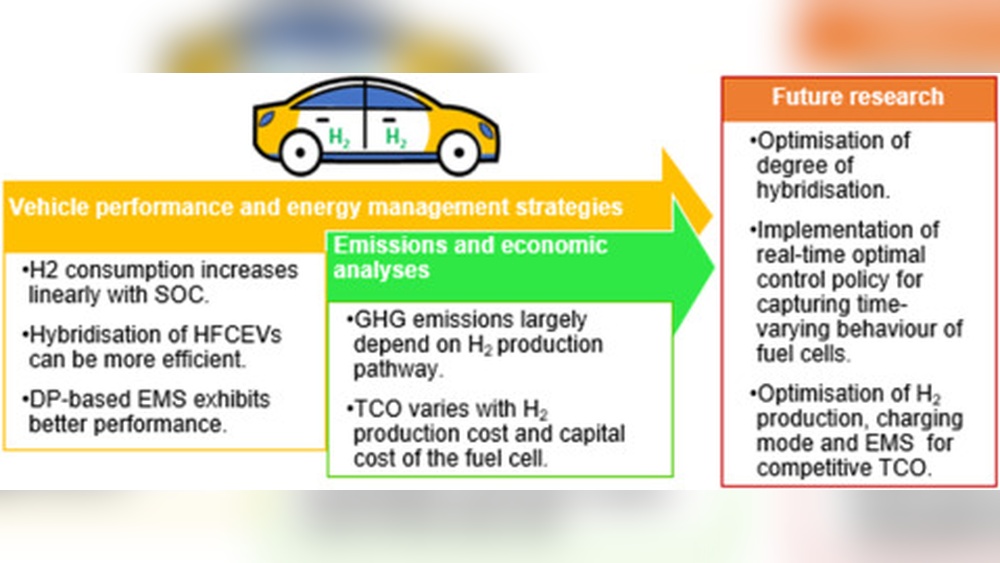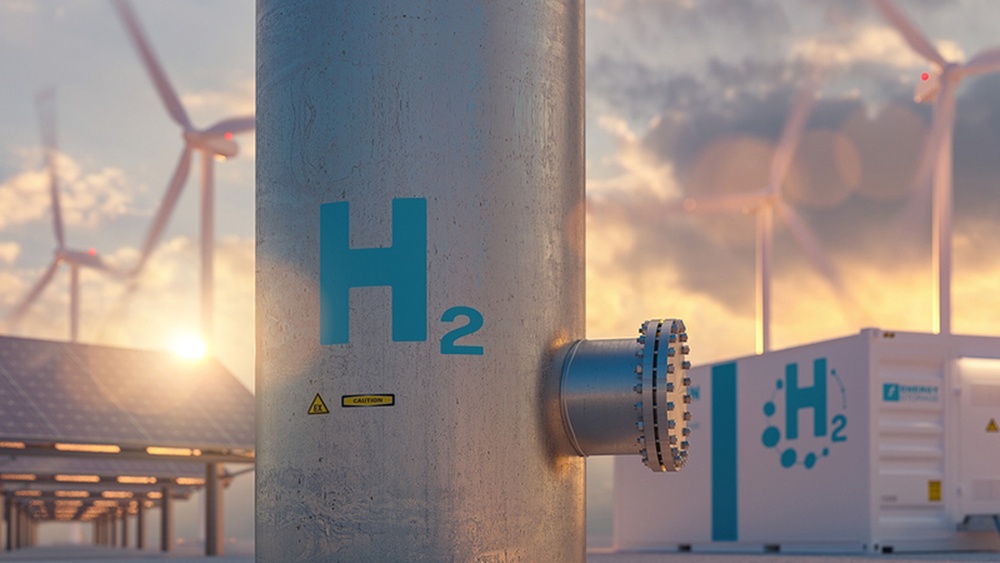Are you curious if hydrogen-powered cars could save you money in the long run? While the upfront price of these vehicles might seem high, there’s more to the story when it comes to cost efficiency.
Imagine driving a car that requires less maintenance and uses fuel that can be cheaper per mile than gasoline. Sounds promising, right? But is it really practical for your daily life? You’ll discover the true costs behind hydrogen cars, including fuel expenses, maintenance, and the challenges that affect their affordability.
By the end, you’ll have a clear picture of whether a hydrogen-powered car could be a smart investment for you. Keep reading to find out!
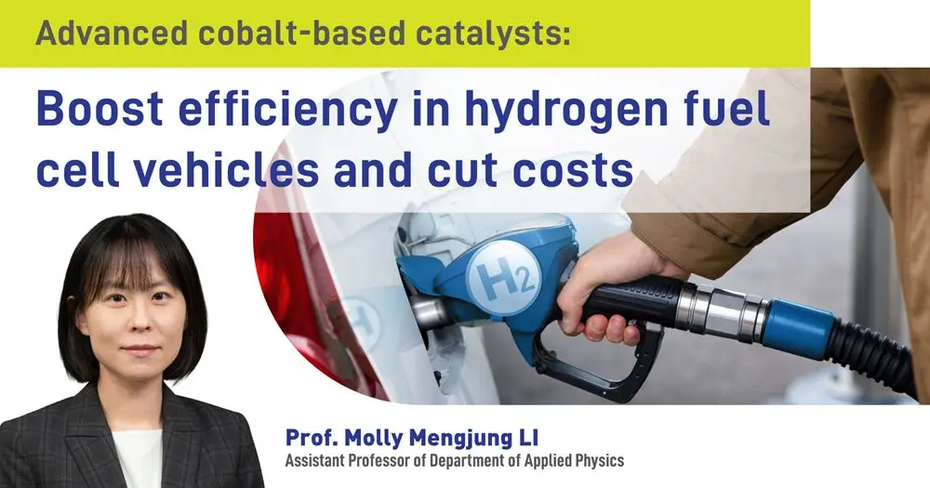
Hydrogen Car Costs
Understanding the costs of hydrogen-powered cars helps buyers make smart choices. These vehicles have unique expenses compared to traditional cars. Some costs are higher upfront, but others can be lower over time. This section breaks down the main cost factors.
Initial Purchase Price
Hydrogen cars usually cost more to buy than gasoline cars. The technology is newer and less common. Fuel cell systems and hydrogen tanks add to the price. Limited production also keeps costs high. Prices may drop as more models become available.
Long-term Ownership Expenses
Hydrogen cars need less maintenance than gasoline cars. They have fewer moving parts, which means less wear and tear. Brake systems last longer because of regenerative braking. Insurance costs are similar to other cars. Battery replacements are rare, saving money over years.
Fuel Price Comparison
Hydrogen fuel costs less per mile than gasoline. Hydrogen stations are fewer, so prices vary by location. Fueling takes only a few minutes, quicker than electric charging. Hydrogen is cleaner, which may reduce fuel taxes in some areas. Overall, fuel costs can be more affordable long term.
Fuel Efficiency And Consumption
Fuel efficiency and consumption play a key role in deciding the cost efficiency of hydrogen-powered cars. These vehicles run on hydrogen fuel cells that convert hydrogen gas into electricity to power the motor. Understanding how much energy they use and how far they can travel per unit of fuel helps compare their cost to other types of cars. This section breaks down important metrics and comparisons for hydrogen cars.
Miles Per Gallon Equivalent
Miles per gallon equivalent (MPGe) measures how far a car travels using the energy equal to one gallon of gasoline. Hydrogen cars typically achieve around 60 to 70 MPGe. This means they can travel 60 to 70 miles using hydrogen energy that equals the energy in one gallon of gas. MPGe helps consumers see the fuel efficiency of hydrogen cars in terms familiar to gasoline vehicles.
Energy Use Compared To Gasoline
Hydrogen fuel cells convert hydrogen into electricity with about 60% efficiency. Gasoline engines run at 20% to 30% efficiency. This shows hydrogen cars use energy more efficiently than gasoline cars. Despite this, producing and transporting hydrogen takes energy, which adds to total consumption. Still, hydrogen cars emit only water vapor while driving, a major environmental benefit.
Efficiency Vs Battery Electric Vehicles
Battery electric vehicles (BEVs) convert electricity into motion with around 85% efficiency. This is higher than hydrogen cars. BEVs also avoid energy loss involved in hydrogen production and storage. However, hydrogen cars offer faster refueling and longer range. The choice depends on needs like driving distance, refuel time, and fuel availability.
Maintenance And Durability
Maintenance and durability play a key role in the cost efficiency of hydrogen-powered cars. These vehicles differ from traditional cars in how they are built and maintained. Their unique design often leads to lower upkeep needs and longer-lasting parts. Understanding these factors helps reveal the true cost benefits of hydrogen cars over time.
Fewer Moving Parts Benefits
Hydrogen cars have fewer moving parts than gasoline vehicles. This means less wear and tear during use. With fewer components, there are fewer chances for parts to break or need replacement. The simpler mechanics reduce the frequency of repairs. This lowers the overall maintenance cost and time spent on servicing.
Fuel Cell Lifespan
The fuel cell is the heart of a hydrogen car. Modern fuel cells have improved in durability and can last many years. Most fuel cells can operate efficiently for over 5,000 hours. This translates to roughly 150,000 miles of driving before major replacement is needed. Longer fuel cell life means fewer costly replacements over the vehicle’s lifespan.
Repair Costs
Repair costs for hydrogen cars tend to be lower than for traditional engines. The fewer moving parts and simpler systems reduce repair complexity. When repairs are necessary, they often involve fewer components. This helps keep labor and parts costs down. Lower repair expenses contribute to better long-term cost efficiency.
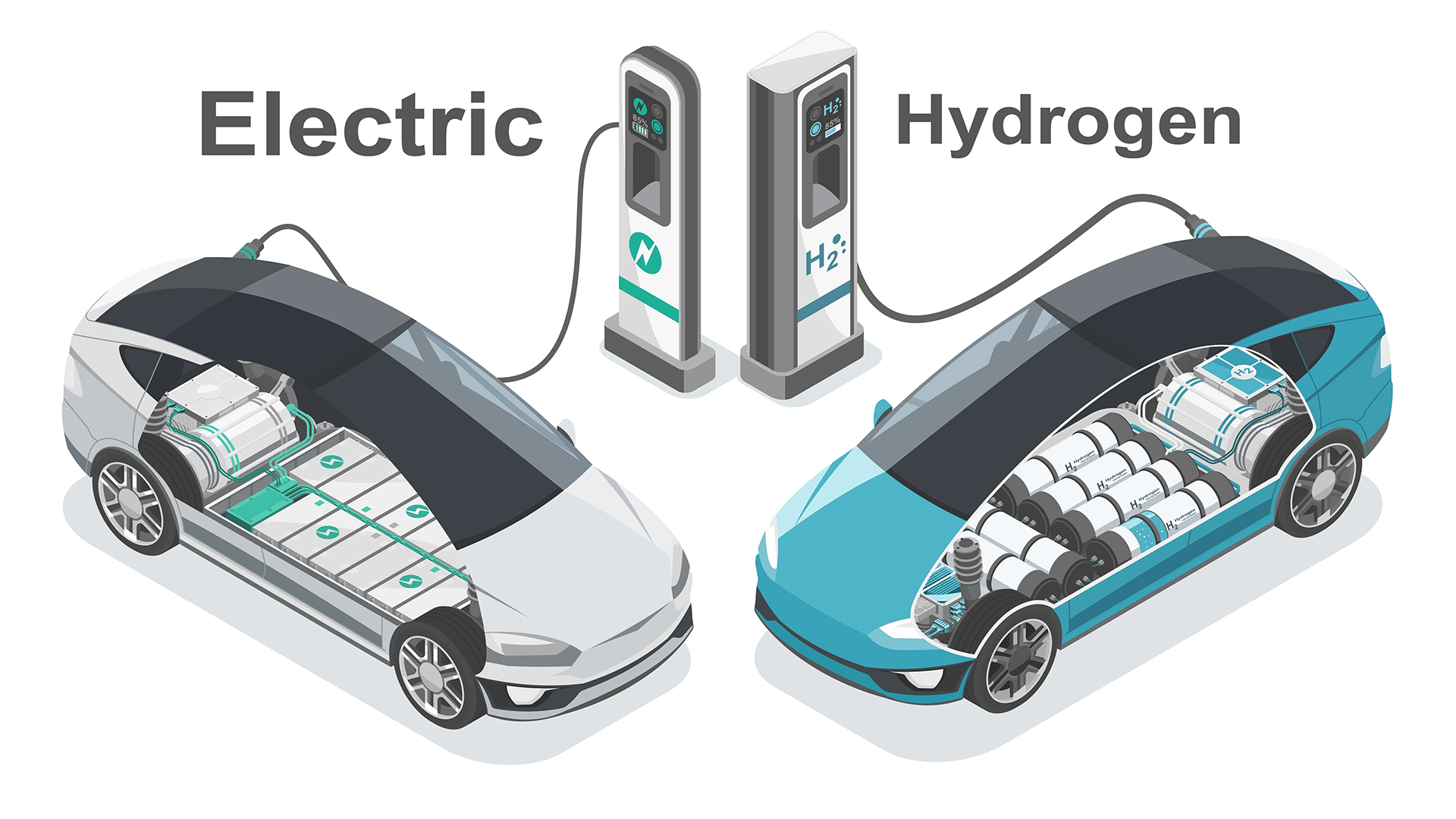
Hydrogen Production Costs
Hydrogen production costs play a key role in the overall affordability of hydrogen-powered cars. The price to produce hydrogen fuel influences how much drivers pay at refueling stations. Understanding these costs helps explain the current state and future potential of hydrogen cars.
Hydrogen is not naturally available in pure form. It must be extracted or produced through various methods, each with different costs and impacts. These methods affect the price, cleanliness, and sustainability of hydrogen fuel.
Current Production Methods
Most hydrogen today comes from steam methane reforming (SMR). This process uses natural gas and heat to produce hydrogen. SMR is cheaper but releases carbon dioxide. Electrolysis splits water into hydrogen and oxygen using electricity. Electrolysis is cleaner but costs more due to electricity use and equipment.
Clean Vs Fossil Fuel Sources
Hydrogen from fossil fuels has lower production costs but higher emissions. It depends on natural gas and creates pollution. Clean hydrogen uses renewable energy like wind or solar for electrolysis. This method reduces emissions but increases costs because of expensive technology and electricity prices.
Impact On Final Fuel Price
Production costs make up a large part of hydrogen fuel prices. Fossil-based hydrogen tends to be cheaper at stations. Clean hydrogen is pricier but offers environmental benefits. As renewable energy grows cheaper, clean hydrogen costs may drop. Fuel price affects how cost-effective hydrogen cars are compared to gasoline or electric vehicles.
Refueling Infrastructure
Refueling infrastructure plays a key role in the cost efficiency of hydrogen-powered cars. Unlike electric vehicles, hydrogen cars need specialized stations to refill. The availability and distribution of these stations impact how practical and affordable hydrogen cars can be. This section explores station availability, regional differences, and their effect on usability and costs.
Station Availability
Hydrogen refueling stations are scarce compared to gas stations or electric chargers. Most are located in limited urban areas or along specific highways. This limited availability means drivers may face long trips just to refuel. The cost of building each station is high, slowing expansion. More stations can lower costs and increase convenience for users.
Regional Differences
Some regions invest more in hydrogen infrastructure than others. California, for example, has a growing network of hydrogen stations. Europe and Asia show varied progress, depending on government policies and funding. Regions with few stations limit the appeal and cost benefits of hydrogen cars. This uneven growth affects the overall market and user experience.
Effect On Usability And Costs
The lack of refueling options reduces usability and raises costs for hydrogen cars. Drivers may need backup plans or switch to other vehicles for long trips. Limited stations also mean less competition, keeping fuel prices high. Expanding infrastructure can improve access, lower fuel costs, and make hydrogen cars more viable for daily use.
Safety And Storage Expenses
The safety and storage expenses of hydrogen-powered cars play a crucial role in their overall cost efficiency. Handling hydrogen requires special technology due to its unique properties. Storing and transporting hydrogen safely involves extra costs that impact the final price of the vehicle and fuel. Understanding these factors helps in evaluating the real value of hydrogen cars compared to other options.
Hydrogen Storage Challenges
Hydrogen has a very low density, which makes storage difficult. It needs to be compressed or liquefied to fit in tanks. These tanks must be strong and lightweight, increasing production costs. Special materials and designs are necessary to prevent leaks and ensure safety. The technology for safe storage is still evolving, which adds to expenses.
Transport Costs
Transporting hydrogen requires careful handling to avoid risks. Pipelines, trucks, or ships must meet strict safety standards. These methods are more expensive than transporting gasoline or electricity. The infrastructure for hydrogen transport is limited, which raises costs further. These factors make hydrogen fuel delivery costly and complex.
Safety Measures Impact
Hydrogen is highly flammable and needs rigorous safety controls. Vehicles and refueling stations include multiple safety features to prevent accidents. These add to the manufacturing and operational costs. Regular inspections and maintenance are necessary to uphold safety standards. Although costly, these measures protect users and increase public trust in hydrogen cars.
Comparing Hydrogen To Alternatives
Comparing hydrogen-powered cars to other vehicle options helps reveal their true cost efficiency. This section breaks down how hydrogen stacks up against popular alternatives. Understanding these differences guides better choices for clean transportation.
Cost Vs Battery Electric Vehicles
Hydrogen cars usually cost more upfront than battery electric vehicles (BEVs). Fuel cells and storage tanks add to the price. BEVs benefit from mass production and simpler designs. Charging a BEV at home is cheaper than buying hydrogen fuel. Yet, hydrogen cars refuel faster, saving time. Maintenance costs for hydrogen vehicles can be lower due to fewer moving parts. BEVs may need battery replacements after several years, which is costly. Overall, BEVs hold a cost advantage today but hydrogen may improve with scale.
Cost Vs Gasoline Cars
Hydrogen cars have higher initial prices than gasoline cars. Fuel costs for hydrogen are often lower per mile than gasoline. Hydrogen vehicles have fewer mechanical parts, leading to reduced maintenance expenses. Gasoline cars benefit from a large refueling network and lower upfront costs. However, fluctuating oil prices can increase gasoline costs unpredictably. Hydrogen fuel prices remain relatively stable. Over a car’s lifetime, hydrogen vehicles can offer savings despite the higher purchase price.
Future Cost Trends
Costs for hydrogen cars are expected to drop as technology improves and production scales up. More hydrogen refueling stations will reduce infrastructure costs. Advances in clean hydrogen production will lower fuel expenses. BEV prices also continue to fall, increasing competition. Governments may offer incentives to boost hydrogen vehicle adoption. Research focuses on cheaper fuel cells and better storage methods. Long-term, hydrogen cars could become more competitive with both BEVs and gasoline cars.
Barriers To Cost Efficiency
Hydrogen-powered cars offer potential benefits but face key barriers to cost efficiency. These challenges affect their price and practicality. Understanding these barriers helps explain why hydrogen cars remain costly today.
Energy Losses In Production And Transport
Making hydrogen fuel uses a lot of energy. Most hydrogen comes from natural gas or electrolysis. Both methods waste energy during production. Moving hydrogen from plants to stations also causes losses. The gas must be compressed or liquefied, which consumes extra power. These energy losses raise the overall cost of hydrogen fuel.
High Manufacturing Costs
Hydrogen cars need special parts like fuel cells and tanks. These parts are expensive to produce. Fuel cells use rare materials such as platinum. Building safe, high-pressure tanks also costs more than standard car parts. Low production volumes keep prices high. Automakers have not yet reached mass production to lower costs.
Market Adoption Challenges
Few hydrogen refueling stations exist today. This lack of infrastructure makes hydrogen cars less convenient. Buyers hesitate to pay more for cars with limited refueling options. Government support and public awareness remain low. Without wide adoption, manufacturers cannot reduce costs through scale.
Potential For Cost Reductions
The cost of hydrogen-powered cars is expected to drop significantly. Several factors contribute to this potential decline. These include advances in technology, larger production volumes, and supportive government policies. Together, these elements can make hydrogen cars more affordable for buyers and cheaper to operate over time.
Technological Innovations
New technologies are improving hydrogen fuel cells. Manufacturers are finding ways to use less expensive materials. This reduces the cost of key components. Advances in production methods also speed up manufacturing and lower expenses. Improved fuel efficiency means drivers use less hydrogen. This cuts overall fuel costs for consumers.
Scaling Production
Mass production of hydrogen cars will bring costs down. More cars made means better economies of scale. Suppliers can lower prices on parts due to higher demand. Building more hydrogen refueling stations will reduce fuel costs. As infrastructure grows, hydrogen cars become easier to use. This encourages more people to buy them, further reducing prices.
Policy And Incentives
Government policies play a big role in cost reduction. Tax credits and rebates make hydrogen cars cheaper to buy. Subsidies for hydrogen production lower fuel prices. Investments in refueling infrastructure increase accessibility. Regulations encouraging clean energy boost demand. These measures help speed up adoption and lower ownership costs.
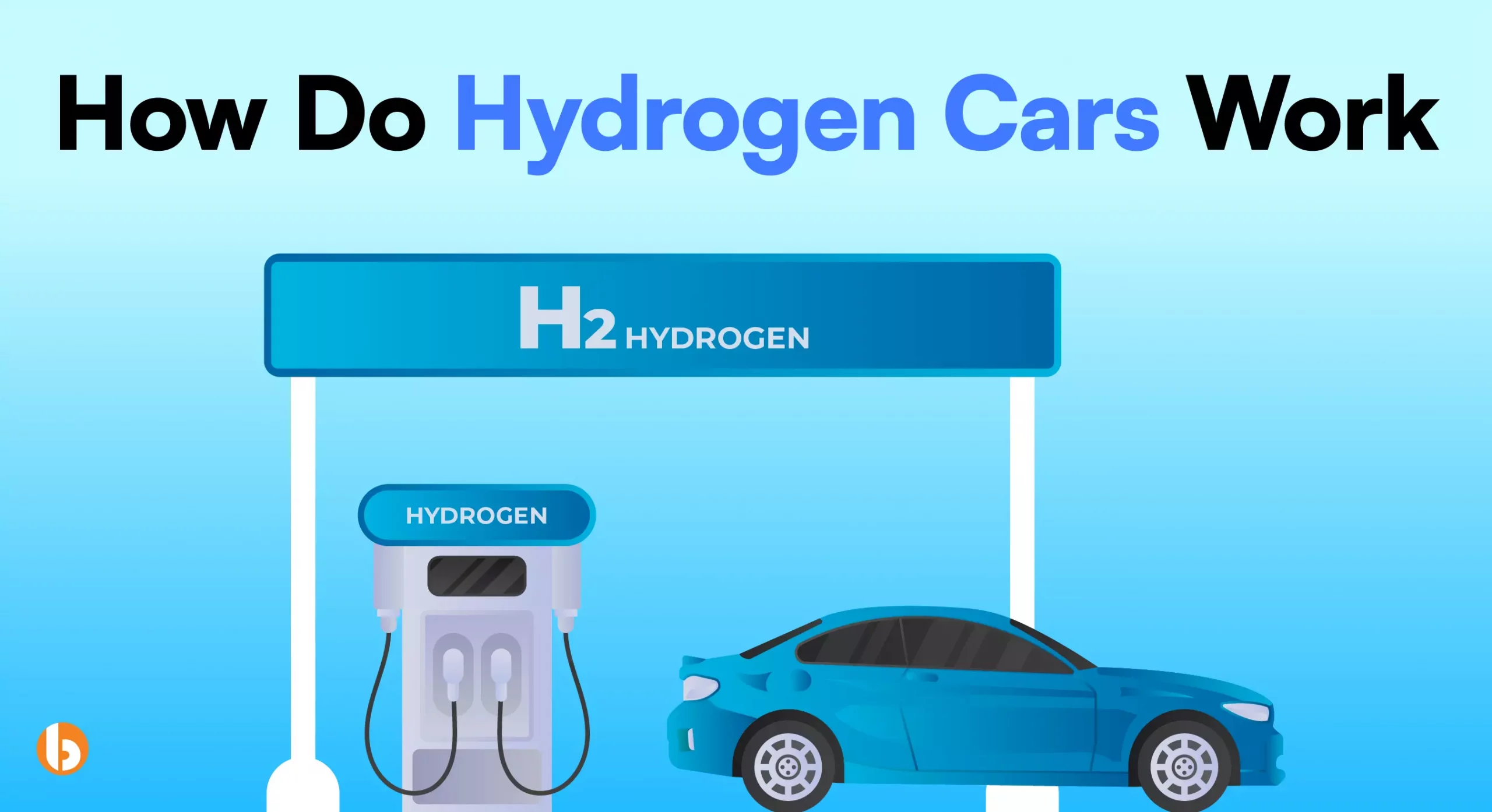
Frequently Asked Questions
Are Hydrogen Cars Cost Effective?
Hydrogen cars have higher upfront costs but offer lower fuel and maintenance expenses long-term. Limited refueling stations affect cost-effectiveness.
What Is The Biggest Problem With Hydrogen Cars?
The biggest problem with hydrogen cars is the lack of refueling stations, high costs, and low energy efficiency compared to electric vehicles.
What Is The Mpg Equivalent Of A Hydrogen Car?
A hydrogen car’s MPG equivalent typically ranges from 60 to 70 miles per kilogram of hydrogen. This reflects its fuel efficiency compared to gasoline vehicles.
How Much Does It Cost To Run A Hydrogen Car?
Running a hydrogen car costs about $3 to $5 per kilogram of hydrogen, equaling roughly 60-70 miles per kilogram. Maintenance is lower than gas cars but hydrogen fuel remains pricier than electricity. Limited refueling stations can increase costs and inconvenience.
Conclusion
Hydrogen-powered cars show promise in reducing fuel costs over time. They need less maintenance due to simpler engines. Yet, high initial prices and limited refueling stations remain challenges. Energy losses in hydrogen production make it less efficient than electric cars.
Still, ongoing research aims to improve these areas. For now, hydrogen cars offer a mixed picture on cost efficiency. Consumers should weigh long-term savings against current limitations. The future may hold better options as technology advances.
